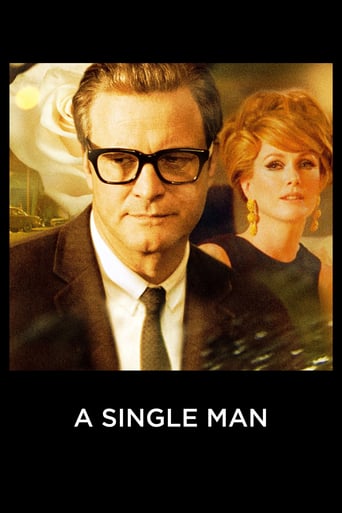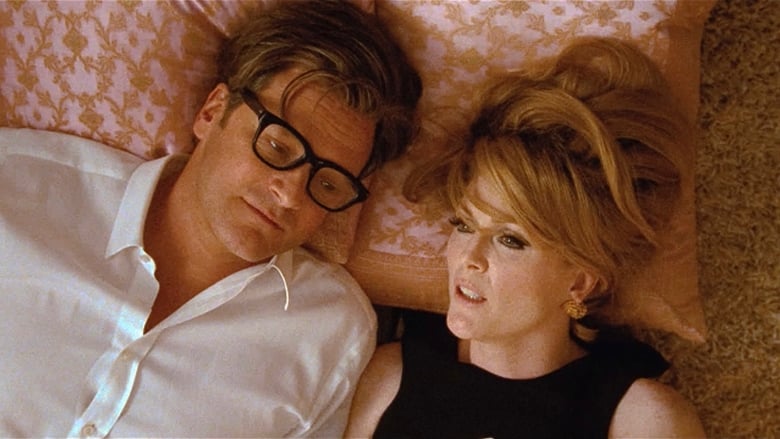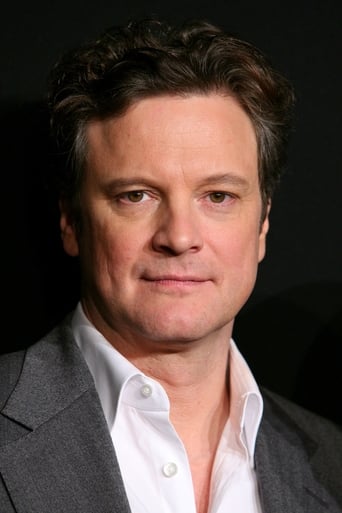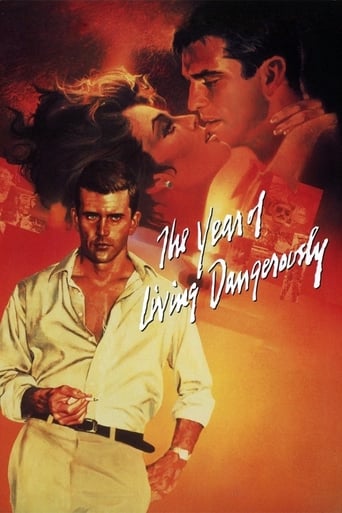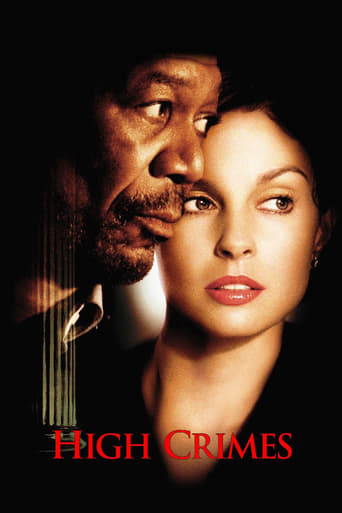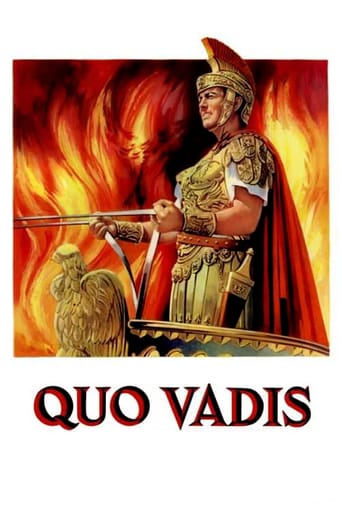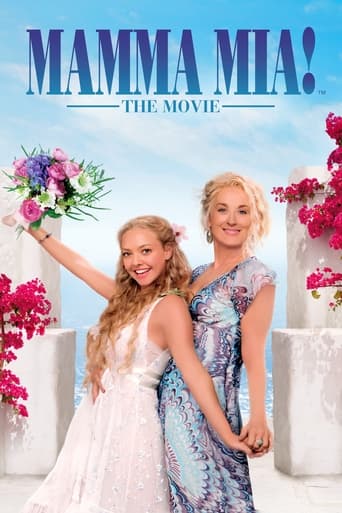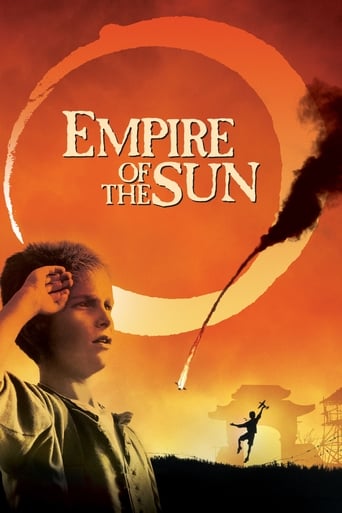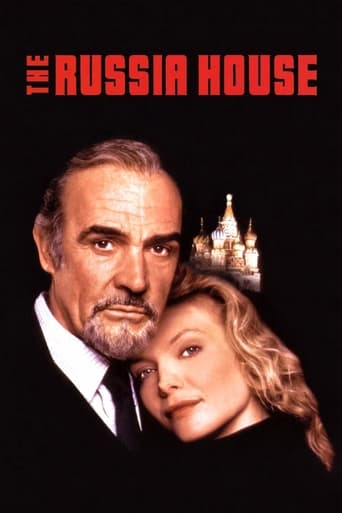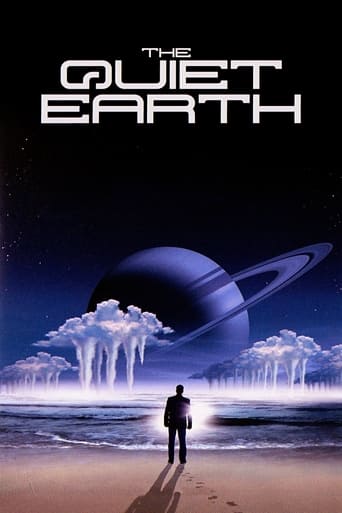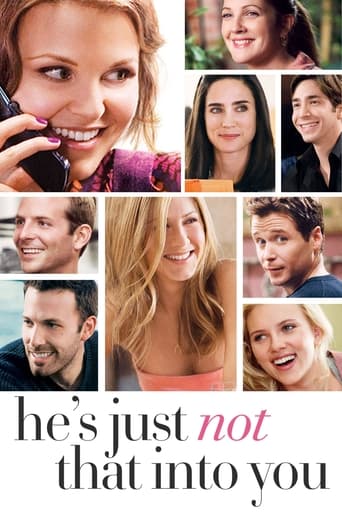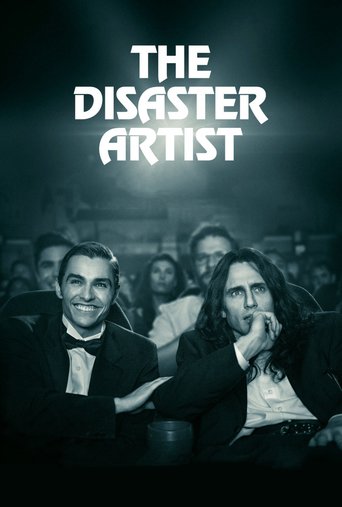A Single Man (2009)
The life of George Falconer, a British college professor, is reeling with the recent and sudden loss of his longtime partner. This traumatic event makes George challenge his own will to live as he seeks the console of his close girl friend Charley, who is struggling with her own questions about life.
Watch Trailer
Cast


Similar titles
Reviews
The answer - visual masturbation. Like this complete waste of time. Sure it might look great but so does a perfume commercial, which ironically is what this director maybe should concentrate on. What happened to keeping the audience engaged? Plot? Character? And the ending. Come on! He drops dead? He could have done that after 10 minutes and saved us all some time. This drones on without any real purpose. Why are people hyping this film and how on earth did it get an Oscar nomination?
What's up with all the single paragraph reviews of this movie? Usually single paragraph reviews on IMDb denote a spam of plugs by the filmmakers and their friends who make junk accounts to inflate a film's appeal. In this case "A Single Man" needs no artificial inflation, but I'm still perplexed as to why nobody has really dug into the guts of this film.And then I realized that it might be because this is a very challenging and somewhat abstract film that defies analysis. Well, that doesn't help you, so let's roll up our sleeves and take a whack at it.Beginning with the setting and look of the movie: It is set in 1960s Los Angeles, and appropriately it has a very dated, nostalgic look with a lot of browns and sepias. But it isn't just for show; the colors (and lack thereof) are designed to strongly convey the protagonist George's state of mind. In the beginning we learn that he has suffered a tragedy, and if you've ever experienced something life-shattering like that, you know that the world becomes bland to you. Technicolor bluejays don't come flying out of nowhere like in a Disney musical, but rather everything seems unspectacular and tasteless. I thought the inter-weaving of the 60s nostalgic look (going by those faded photographs of the 60s which, coincidentally, match the fading of memory with its color shift to monochrome) was well done.So if I haven't bored you to death with my (now 3!) paragraphs of unsensational writing, read on because there's a reason. The story itself is rather unsensational, and so it requires a decent attention span. If you bore easily, then this isn't the film for you. It's a mostly quiet exploration of a man's tormented mind; however it's spiced up by a nice little attention grabber right near the beginning. George plans to kill himself.Ah now that got your attention, didn't it? Although it shouldn't dominate the story (and doesn't), it's enough to keep you on the hook, knowing that there is an impending sense of finality. Call me a sucker, but I fall for this plot device every time, and I love movies that begin with the premise of the protagonist facing death because it adds value to even the tiniest details that unfold. Not to mention the whole morbid curiosity of wanting to see if the deed is done.Back to the story. George is a gay man in the 1960s who is not only alienated from people by his tragedy, but he is further excommunicated by the homophobic attitudes of the time. Don't worry, it's not bashed over your head like some pity party; the homophobia is shown with subtlety, so it's not a cartoonish farce. George is a respected, classy gent and there are no sensational scenes of bullying or hate, but perhaps more insidious than bullying, there's a sort of polite barrier that people (his family) construct.His one friend is "Charley" played by Julianne Moore. She plays a sort of deplorable socialite whom you can't help but love. Herself guarded by a facade of makeup and a contrived New England accent, she is a prisoner in her own sort of polite barrier. There's one scene I loved where George & Charley break down their respective oppressive walls of gentility and groove out to a hip 60s tune ("Green Onions" by Booker T Jones) which was the 1960s equivalent of pelvis-thrusting house music. The spectacle doubles as an interesting seduction scene, and you'll have to watch the movie to see how that turns out."A Single Man" has a artistic feel and visually poetic quality that could only be achieved by a brash cinema newcomer who hails from a different artistic discipline altogether. We got exactly that with debutante director Tom Ford, a fashion designer who revamped Gucci in the mid 90s, saving the company from collapse. I haven't seen his Gucci creations, but I was surprised that the look of this film is surprisingly dark and conservative. No flashy runway theatrics required.Tom Ford's vision reminds me of other stylish directoral debuts from art crossovers like Chanel/Dior model-turned-director Daniella Amavia ("A Beautiful Now") and dancer-turned-director Arielle Javich ("Look, Stranger"). It also reminded me very much of the excellent film by Sally Potter (dancer-turned-director) "Ginger & Rosa" which is similarly set during the 1960s in polite society while the Cuban Missile Crisis and threat of nuclear annihilation looms over the head of Ginger, a very troubled teen. In all of these films I've mentioned, the look is very distinct, graceful and memorable. If you like films like that which, in addition to providing lush eye candy, also force you to think about subtle themes rather than action & car chases, check out "A Single Man" and all the others.
George Falconer (Colin Firth) is an esteemed university professor in an idyllic academic town and everything should be fine except that 8 months ago, the love of his life, his boyfriend Jim, was killed in a car accident. Since that tragic turn, George has been struggling to come to terms, but he is failing to enjoy life again One day, he decides to commit suicide to overcome the overwhelming feeling of loneliness and futility. Yet, on the presumably last day of his life, he learns to perceive his existence in a new light .The storyline is conspicuously inconspicuous: it offers nothing more than one day in the life of a privileged intellectual who suffers from loneliness and a midlife crisis. Yet, it is exactly this narrative minimalism that enables the director to focus on the cinematography and that turns this movie into an orgy of aesthetic brilliance, creating an imagery that is endowed with symbolism and sheer beauty. Be it George's pedantically clean and wonderfully neat home which represents a fusion of traditional comfortable hut and urban apartment with a lot of glass, be it George's meticulous clothing, be it the old-fashioned campus setting that is nostalgically reminiscent of the 1960s - the director was painstakingly aware of the slightest detail and this perfectionism makes the watching really enjoyable. Of course, this sublime project wouldn't have worked without trademark performances by Colin Firth, Juliette Moore and Nicholas Hoult. It's hard to image anyone else playing the part of George than Colin Firth – he brings so much authenticity to the character that he becomes almost transparent to the viewers. Firth's performance mixes dignity and intellectual brilliance with an emotionality that never gets corny. When tears are flowing, you do not doubt their real- ness. When George rejects sexual temptations, he does it believably. Juliette Moore fills out her supporting role as George's best friend Charley with all she has: the story doesn't yield much room to her, but like in many other films (notably in "Magnolia") she delivers a memorable performance. Nicholas Hoult shines as the breathtakingly handsome student Kenny, who takes a deeper interest in George, who is his literature professor. Many may find it unrealistic that a student cares to such an extent for his professor and that he instinctively feels that the latter is deeply depressed. Yet, if you understand this odd attraction in a more allegorical sense, then you will see that Kenny is just an impersonation of youth with all its attributes: beauty, curiosity, innocence. In the end, George is reminded that these attributes still exist and continue to do so. Even though life has lost some of its color when his boyfriend passed, the colors are still there for him to grasp. The ending is both tragic and ironical, thus very life-like: George has rationally accepted and also deeply felt that there is still a lot to live for and thus he embraces life again. Then a sudden heart attack kills him and reunites him with his deceased partner All in all, this movie is an aesthetic achievement, carried by outstanding charismatic actors.
The first and foremost thing that one notices while watching Tom Ford's 'A Single Man' starring Colin Firth is the glossy visual texture of the film which makes every frame look extremely glamorous, shiny and attractive. Now there are critics who have accused Ford of bringing his overt fashion designing sensibilities to the screen and overdoing and over-glamorising the film. Personally I can understand why someone might raise this issue, but I think the over-stylisation is a specific artistic choice and it serves a thematic purpose. One of the primary themes of the film is the concept of living in perpetual fear. There is a extended lecture that George(Firth) delivers in his class to his students about how this fear can have varied roots and forms and the methods to counter this fear varies too. George's own fears are the results of a combination of factors. One of them being the fact that he is a minority, a homosexual living in a society that doesn't completely accept diversity in sexuality. Another huge and overbearing reason for his fears is his crippling sense of loneliness after his partner, Jim's sudden death. It is clear that Jim's love and acceptance gave George a sense of fulfillment. Without Jim, he has mentally slipped into a state of emotional confinement. He uses the lavish, intricate and meticulously designed interiors of his house, the sharp clothes and clean cut appearance to hide his inner grief. He morphs into the smooth, charming and handsome image that everyone expects to see in order to hide his inner turmoil and pain. So this is where Tom Ford's over-stylised set designs and visuals become into play as when this context is taken into account, one will understand that Ford is using these 60s inspired sets not because he has a passion for designing 60s era sets and clothes, but because George himself is using these things as an armour.Everything that happens during the day depicted in the film is shown from George's point of view. We get fleeting shots of things that are drawing his attention in a particular moment through jump cuts and quick editing. Ford also adjusts the visual colour palette and texture to reflect the mental state of George in specific scenes. We shift from the bland texture of normality to over-saturation to frames being splashed with vibrant red or blue. Of course this is influenced by similar artistic choices by Hitchcock in 'Vertigo' and there's also a scene that takes place with a huge poster of 'Psycho' in the background. But other than Hitchcock, the dreamy and intentionally melodramatic tone that is set by Ford right from the first scene with the melancholic score reminded me of the so called "women's pictures" from the 1950s like Douglas Sirk's 'All that Heaven Allows' which also involved artistic use of colour. Ford also uses a number of Sirk- esque shots of reflections on mirrors and other glass surfaces to visually express emotional repression and confinement. Some of the visual metaphors and directorial choices might be a bit too on-the-nose and not on the subtle side, but considering the melodramatic tone that is set by Ford, those moments of overtness seem appropriate and not out of place.From a visual standpoint, Tom Ford clearly shows the presence of an artistic vision and meticulous craftsmanship. But for me he is a bit weak when it comes to tackling and writing conversation scenes. The screenplay written by Ford and David Scearce based on the novel written by Christopher Isherwood works well on a broader level in terms of setting up the character of George and exploring his fears. But I think the writing fails in giving us sharp and insightful dialogue in a few scenes especially the scenes involving George and Kenny which are essential to give us an understanding of the connection between the two characters. This weak dialogue stands out as a blot in an otherwise highly impressive directorial debut.Colin Firth deserves almost as much praise for this film as Tom Ford. He shoulders this film from start to finish and gives us a deeply moving performance. We all know he can play the smooth and sophisticated side of George, the side that George presents to the world. But what Firth really excels at are the scenes where the facade drops and the 'real' George in his solitude appears in front of us. 'A Single Man' has some problems when it comes to the quality and potency of dialogue in some crucial scenes, however one can't help but admire the depth in the exploration of a lonely man's fears and insecurities. Tom Ford's artistic and visual craftsmanship and of course Colin Firth's marvellous performance makes this an easy recommendation.

